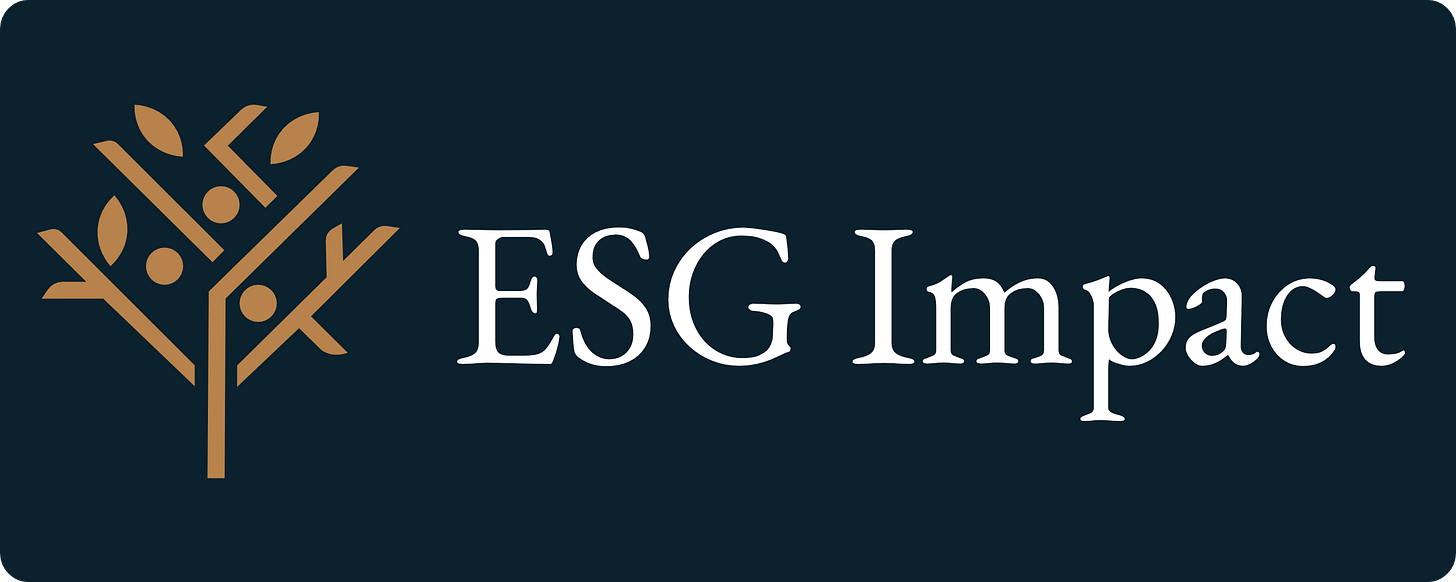Nashville software startup raises seven figure pre-seed round
ESG Impact will double the size of its team with the new funds
ESG investors believe that investing in environmental, social governance (ESG) conditions, will not only improve our world, but yield higher returns. As a result, startups and companies that focus on ESG initiatives and have higher ESG ratings attract more investors and investment.
Here’s the problem: ESG ratings and reporting cost a lot of time and money — two things many companies, especially young startups, don’t have.
ESG ratings are essentially a sustainability credit score. Companies use ESG ratings internally to assess their own risks and business decisions. Externally, angel investors, private equity groups and venture capital firms use a business's ESG score as a sort of bellwether when evaluating potential investments.
24-year old Vanderbilt graduate students Adam Jace and Max Mona believe that ESG ratings and reportings should be accessible.
“Business ethics should neither cost a fortune nor be transactional,” Mona says. “Sustainability goals grow and evolve with the business.”
GoAhead Ventures, a Silicon Valley company, shares their belief. The Bay Area firm which has a reputation for investing in subscription based software companies invested $1 million in Jace’s and Mona’s SaaS startup — ESG Impact, nicknamed ESGi.
The new injection of capital comes just a month after Mona and Jace were awarded first place at the SEC pitch competition. The pair says they will use the fresh funds to expand their business development efforts, double the size of their three-person team and continue maturing their technology.
ESGi is a web-based subscription software designed to disrupt ESG consulting.
“Traditional ESG consulting consists of thousands of email messages, back-and-forth attachments, a one-off transaction structure, and of course, a hefty price tag,” Mona explains.
Currently, ESG consultants have a foothold in the industry. A one-time ESG rating and report (which consists of an internal audit and recommendations) can run anywhere between $30,000 to $50,000. ESG Impact claims to cut the costs of ESG rating and reporting by more than 90-percent.
The SaaS (software as a service) startup has a scaling pricing model that starts at $499 for start-ups and builds up to $9,999 for middle-market companies.
The platform allows companies and funds to evaluate their ESG rating, educate themselves on ESG best practices, and track the effectiveness of practices they integrate throughout the life cycle of their company or fund.
Mona says startups and funds can sign up for ESGi’s software in a matter of minutes. Upon sign-up, ESGi users are asked to complete two assessments. The Materiality Assessment defines and prioritizes stakeholder values alongside a company’s impact, and the Impact Rating Assessment quantifies ESG for a company based on the sector and its size. Once users complete the assessments, they are given access to ‘recommended projects’ and other deliverables that they can complete in their own time. The recommended projects are practices and initiatives that are likely to increase a company’s ESG rating.
There are various definitions of — and approaches to — ESG practices, Mona explains. Some practices seek to adopt operations that are less harmful to the environment, such as reducing the emissions of greenhouse gasses, while others aim to further social causes like increasing diversity or improving workplace conditions.
Regardless of the approach, interest and emphasis in the once niche topic has grown dramatically.
In 2019, about $17.1 trillion — about one-third of all assets under professional management in the United State were being managed using some type of ESG strategy, according to US SIF Foundation, a sustainable investing trade group. That was a 42-percent increase from 2017.
“The socially conscious investors of yesterday tended to be more focused on causes than performance—i.e., they were willing to give up returns to do good things with their money,” CCIM Chief Economist and ESG expert KC Conway says. “These days, a lot more people are in it not just to advance causes they believe in, but in the hopes of achieving returns that are equal to or greater than those of traditional investments.”
A notable 42-percent of respondents in the Schroders 2020 Global Investor Study say they are attracted to sustainable funds and companies because of the likelihood they will provide higher returns.
According to Mona, several venture-backed companies — PulsESG, ESGgo, and Novisto — plan to release ESG reporting software over the coming months. However, these companies are focused on helping post-IPO companies measure ESG performance whereas ESGi is designed to work with companies and funds throughout their entire life cycle — from their seed round through their IPO.



